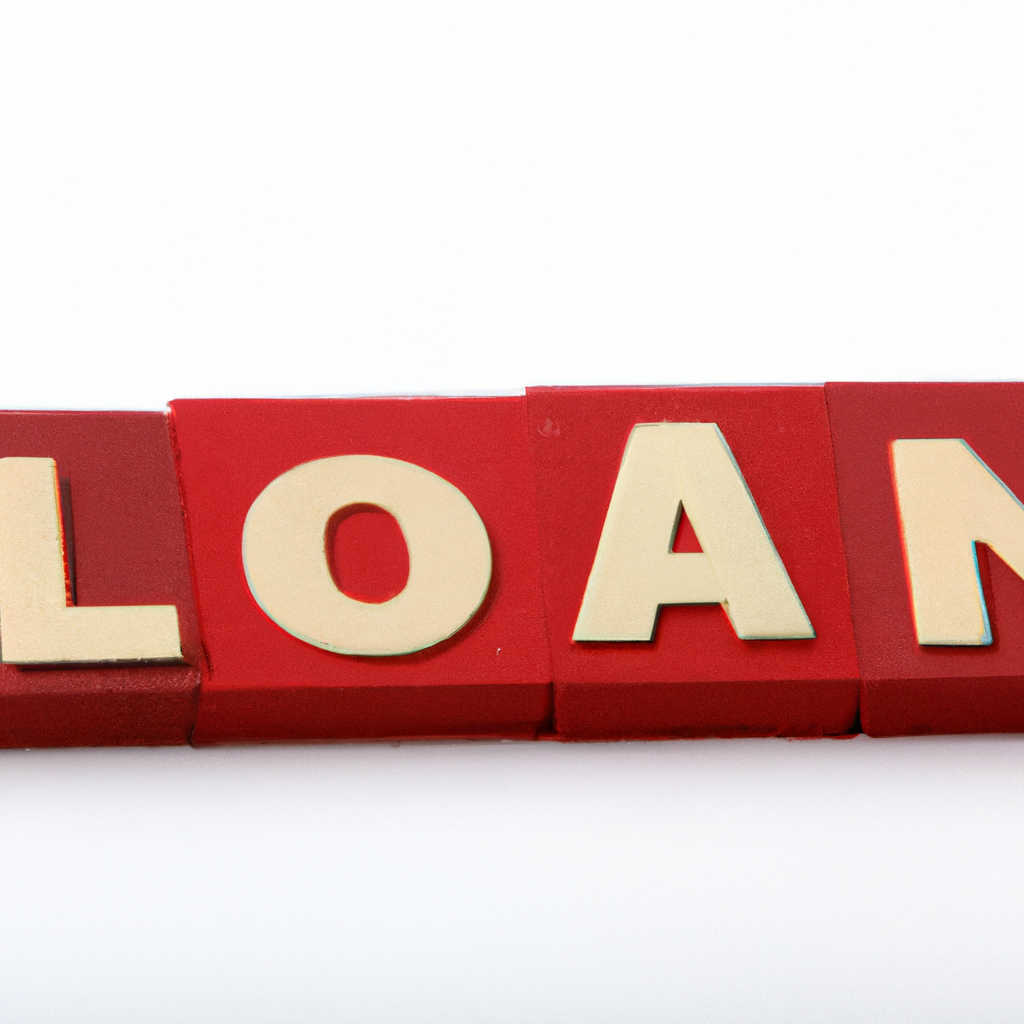In today’s fast-paced world, many individuals find themselves burdened with various debts, such as credit card balances, personal loans, and medical bills. Managing multiple debts can be overwhelming, leading to financial stress and anxiety. However, there is a solution that can help you regain control over your finances and alleviate the burden of multiple debts – a debt consolidation loan. In this article, we will explore the concept of debt consolidation loans, how they work, their benefits, and provide valuable insights on how to choose and apply for one.
What is a Debt Consolidation Loan?
A debt consolidation loan is a financial tool that allows individuals to combine multiple debts into a single loan. Instead of making separate payments to different creditors, a debt consolidation loan enables borrowers to make a single monthly payment towards their consolidated debt. This can simplify the repayment process and potentially reduce the overall interest rate and monthly payment amount.
How Does a Debt Consolidation Loan Work?
When you obtain a debt consolidation loan, the lender provides you with funds to pay off your existing debts in full. By doing so, you effectively consolidate your debts into one loan. The consolidation loan may have a lower interest rate compared to your previous debts, which can result in savings over the repayment period. This single loan eliminates the hassle of managing multiple payments and due dates, making it easier to stay organized and on top of your financial obligations.
Benefits of Debt Consolidation Loans
Debt consolidation loans offer several benefits to individuals struggling with multiple debts. Let’s take a closer look at some of the key advantages:
- Simplified Repayment: With a debt consolidation loan, you only need to make one monthly payment instead of juggling multiple payments to different creditors. This simplifies the repayment process and reduces the chance of missing a payment.
- Lower Interest Rates: Depending on your creditworthiness and the type of debt consolidation loan you choose, you may be able to secure a lower interest rate. A lower interest rate can save you money over time and accelerate your path to debt freedom.
- Reduced Monthly Payments: If the interest rate on your debt consolidation loan is lower than the average rate of your existing debts, your monthly payment may also decrease. This can free up some of your monthly income for other essential expenses or savings.
- Debt Repayment Timeline: Debt consolidation loans can provide borrowers with the option to extend their repayment timeline, allowing for more manageable monthly payments. However, it’s essential to strike a balance between a longer repayment period and minimizing the overall interest paid.
- Improved Credit Score: Effectively managing a debt consolidation loan can positively impact your credit score. Consistently making on-time payments and reducing your overall debt can demonstrate responsible financial behavior to credit bureaus.
Types of Debt Consolidation Loans
Debt consolidation loans come in various forms, each catering to different financial situations and borrower preferences. Here are some common types of debt consolidation loans:
- Personal Loans: Personal loans are unsecured loans that can be used for debt consolidation. They generally have fixed interest rates and repayment terms, making it easier to budget and plan for the future.
- Home Equity Loans or HELOCs: Homeowners may choose to tap into the equity of their homes to obtain a debt consolidation loan. Home equity loans and home equity lines of credit (HELOCs) use the value of the property as collateral, potentially offering lower interest rates but also posing the risk of losing your home if you default on the loan.
- Balance Transfer Credit Cards: Some credit card companies offer balance transfer promotions, allowing you to transfer your existing credit card balances to a new card with a low or 0% introductory interest rate. This option can be beneficial if you can pay off the balance before the promotional period ends.
- Debt Management Plans: Debt management plans are typically offered by credit counseling agencies. They involve negotiating with creditors to lower interest rates and consolidate your debts into a single monthly payment. These plans often come with fees, so it’s important to consider the cost-effectiveness.
Qualifying for a Debt Consolidation Loan
To qualify for a debt consolidation loan, lenders typically consider several factors, including:
- Credit Score: A higher credit score improves your chances of qualifying for a debt consolidation loan with favorable terms. Lenders perceive individuals with good credit scores as less risky borrowers.
- Debt-to-Income Ratio: Lenders assess your debt-to-income ratio to evaluate your ability to repay the loan. A lower debt-to-income ratio indicates better financial stability.
- Collateral: Depending on the type of loan, you may need collateral to secure the debt consolidation loan. Collateral can provide lenders with reassurance and may result in more favorable loan terms.
- Employment and Income Stability: Lenders often verify your employment and income stability to ensure you have a steady source of income to make timely loan payments.
Factors to Consider Before Applying for a Debt Consolidation Loan
Before applying for a debt consolidation loan, it’s important to carefully consider the following factors:
- Total Cost: While debt consolidation loans can potentially save you money, it’s essential to calculate the total cost of the loan, including interest charges and any fees associated with origination or prepayment penalties.
- Financial Discipline: Debt consolidation loans can be a powerful tool, but they require discipline to avoid accumulating new debts. Evaluate your financial habits and make a commitment to changing any spending behaviors that led to your previous debt accumulation.
- Potential Risks: Understand the risks associated with different types of debt consolidation loans. For example, using your home as collateral in a home equity loan or HELOC poses the risk of foreclosure if you are unable to make payments.
- Long-Term Financial Goals: Consider how a debt consolidation loan fits into your long-term financial goals. Will it help you achieve financial freedom and peace of mind? Assess whether the monthly payment and repayment timeline align with your objectives.
The Debt Consolidation Loan Process
The process of obtaining a debt consolidation loan typically involves the following steps:
- Assess Your Debts: Begin by evaluating all your outstanding debts, including their balances, interest rates, and monthly payments. This will give you a clear picture of your financial situation and the amount you need to consolidate.
- Research and Compare Lenders: Research various lenders and loan options to find the one that best suits your needs. Compare interest rates, repayment terms, fees, and eligibility requirements to make an informed decision.
- Gather Documentation: Lenders will require specific documentation to process your loan application. This may include proof of income, identification documents, and details of your existing debts.
- Apply for the Loan: Complete the loan application process with the chosen lender. Provide accurate information and be prepared for a credit check.
- Review Loan Terms: Carefully review the loan terms, including the interest rate, repayment period, and any associated fees. Seek clarification if you have any doubts before accepting the loan offer.
- Repay Your Debts: Once approved, the lender will provide the funds to pay off your existing debts. Make timely payments on your debt consolidation loan to avoid any negative impact on your credit score.
Pros and Cons of Debt Consolidation Loans
Like any financial solution, debt consolidation loans have both advantages and disadvantages. Let’s explore them further:
Pros:
- Simplifies debt management by consolidating multiple debts into a single loan.
- Potential for lower interest rates, resulting in savings over time.
- Offers the convenience of a single monthly payment, reducing the chances of missed payments.
- Can improve credit scores when managed responsibly.
Cons:
- May not be suitable for individuals with poor credit scores, as they may face higher interest rates or difficulty qualifying.
- Some debt consolidation loans require collateral, such as a home or vehicle, which can put those assets at risk.
- There may be fees associated with loan origination or prepayment penalties.
- It’s essential to address the root causes of debt accumulation to prevent future financial challenges.
Alternatives to Debt Consolidation Loans
If a debt consolidation loan doesn’t seem like the right option for you, there are alternative strategies to consider:
- Snowball Method: The snowball method involves prioritizing the repayment of debts with the smallest balances first while making minimum payments on other debts. Once the smallest debt is paid off, move on to the next one, creating a sense of accomplishment and momentum.
- Avalanche Method: The avalanche method focuses on tackling debts with the highest interest rates first, regardless of their balances. By prioritizing high-interest debts, you can save more money on interest payments in the long run.
- Credit Counseling: Consider seeking help from a nonprofit credit counseling agency. They can provide guidance on managing your debts, creating a budget, and negotiating with creditors to potentially lower interest rates.
- DIY Repayment Plan: If your debts are manageable and you have a disciplined approach to finances, you can create your own debt repayment plan. Allocate a specific amount each month towards debt payments and consistently stick to the plan until all debts are paid off.
Tips for Choosing a Debt Consolidation Loan
When selecting a debt consolidation loan, keep the following tips in mind:
- Compare Multiple Offers: Don’t settle for the first loan offer you receive. Shop around and compare offers from different lenders to ensure you get the best terms and interest rates.
- Check the Fine Print: Carefully review the loan terms and conditions, including any fees, prepayment penalties, or hidden charges. Be aware of any potential risks associated with the loan.
- Consider Credit Counseling: If you’re unsure about the best approach for your situation, consult a credit counselor who can provide personalized advice and guidance.
- Avoid New Debts: Once you consolidate your debts, resist the temptation to accumulate new ones. Create a budget and stick to it, focusing on building a strong financial foundation.
How to Apply for a Debt Consolidation Loan
To apply for a debt consolidation loan, follow these general steps:
- Gather your financial information, including details of your debts, income, and expenses.
- Research and compare lenders, considering their interest rates, loan terms, and reputation.
- Complete the loan application with accurate information, ensuring you meet the lender’s eligibility criteria.
- Provide any requested documentation, such as proof of income, identification, and existing debt information.
- Review the loan terms and conditions carefully before accepting the offer.
- Upon approval, use the loan funds to pay off your existing debts and begin making payments on the consolidation loan.
Debt Consolidation Loan: A Path to Financial Freedom and Peace of Mind
A debt consolidation loan can be a valuable tool on your journey to financial freedom and peace of mind. By simplifying the repayment process, potentially lowering interest rates, and offering a structured plan, debt consolidation loans help individuals regain control over their finances. However, it’s crucial to weigh the pros and cons, consider alternatives, and choose a loan that aligns with your financial goals and circumstances. With discipline, commitment, and careful planning, a debt consolidation loan can pave the way towards a brighter financial future.

